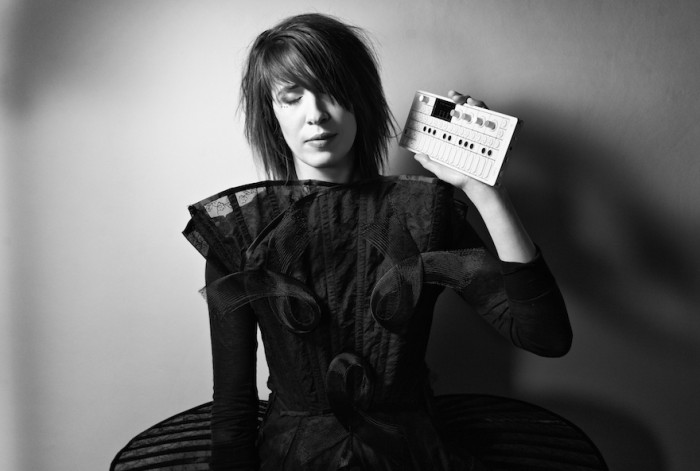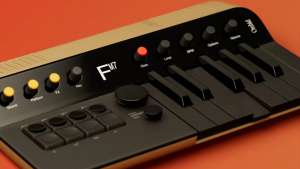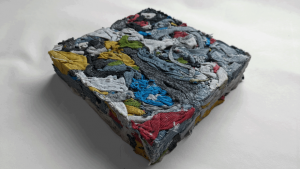From the Series

There are a few things that make British singer-songwriter Imogen Heap unusual. The first is that she was a self-produced musician long before it was popular to self-publish. The second is that she often performs wearing her (self-developed) experimental, high-tech Mi.Mu gloves, which allow her to control the sound of her voice with gestures. And the third is that she is championing the revolution of the music industry to make it a fair space for artists to earn a living. Heap plans to do this through the construction of a platform she calls Mycelia.
Heap unveiled the first iteration of her high-tech Mi.Mu gloves in 2011. They were born out of her desire to be freer on stage and more connected to the spontaneous process of creating music. The gloves allow Heap to change and manipulate sound effects through movements rather than buttons and switches. Each song becomes a peculiar dance-like duet between body and voice. Heap's song "Me the Machine" was the first song she created solely with the gloves. The video below was created by our media partner, architecture and design magazine Dezeen. In it, Heap explains how the gloves work and what they enable her to do with her music and Dezeen won the People's Voice Webby Award for best technological video of the year 2015 for the piece.
Since the gloves, Heap has continued to push boundaries in the digital-music landscape. Her most recent project, Mycelia, involves a radical redesign of the music industry to help artists make money from their work.
When asked what exactly Mycelia is, Heap explains that it is as much an ethical code as it is an actual platform: “It’s just to create the standards for the business to thrive upon and within. And those people who adhere to those standards are automatically kite stamped with Mycelia.”
Heap has been working with various technical collaborators to conceptualise and create the Mycelia platform.
“Mycelia is a shape shifter. It’s about fairness and the beauty of music and the sustainability of music. It’s the idea that we want to do something better,” says Heap. “I don’t want to develop actual technology. What I think is needed is an umbrella for people thinking along these lines.”
The platform proposes using blockchain technologies, similar to those used by the digital currency bitcoin, to distribute data related to music. The data would include the audio for the song as well as lyrics, photos and details of the instruments played, much like an old-fashioned album sleeve.
In a trial of the system, Heap released her latest track, “Tiny Human” (on which her baby daughter Scout is the percussionist), via these blockchain technologies in September 2015.
If Mycelia were to truly become the future of music distribution, then all of the middlemen (i.e. the agents) would become obsolete, and payment would pass directly from the consumer to the artist. It would mean the end to “clunky, heavy, old corporate structures and paying unfair splits to people,” says Heap.
And if all of this leaves you feeling curious and confused then you can join us to see Imogen Heap explain it all herself on the stage of Design Indaba Conference 2016.
Imogen Heap will be speaking at Design Indaba Conference 2016. Book now.








